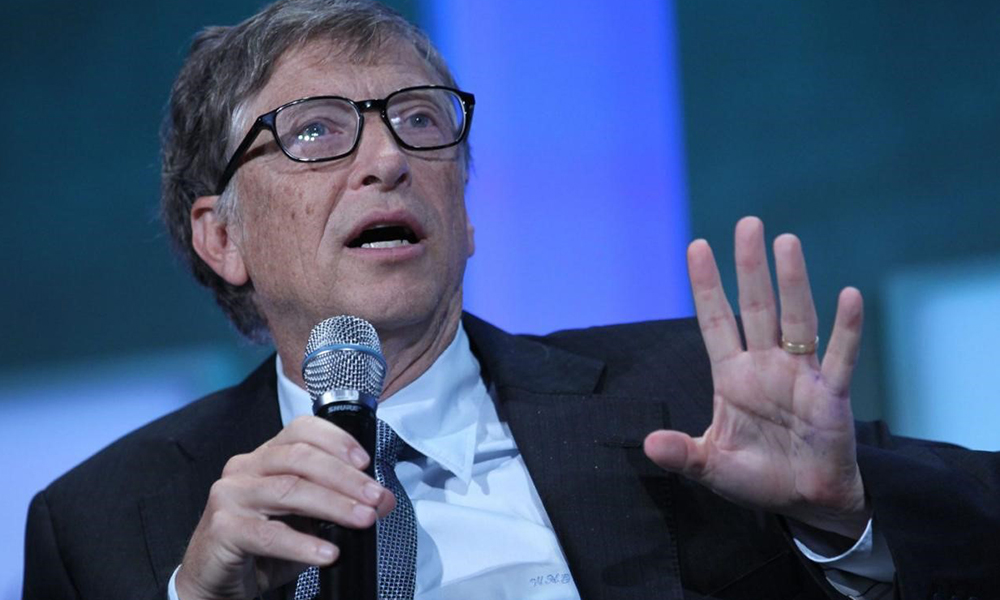
许多作家、翻译和客服人员都对人工智能的快速发展感到担忧,并担心它会威胁自己的工作。但微软公司(Microsoft)的联合创始人、人工智能乐观主义者比尔·盖茨认为,人工智能会给职场带来一些不太激烈的变化。
盖茨于3月21日在一篇有关人工智能的博客中说:“在许多工作岗位,人工智能的能力没有得到充分应用。”他还表示,OpenAI的ChatGPT等聊天机器人表达思想的能力,将“越来越像是拥有一个白领工人”。
微软和谷歌(Google)均推出了整合人工智能的产品,包括各自的聊天机器人必应(Bing)和Bard。今年3月,两家公司都将人工智能整合到现有的应用程序当中。
微软将其新工程称为“副驾驶”,而谷歌表示其目标是打造新一代“数字助手”。虽然在工作场所,人工智能将变得越来越聪明,但盖茨表示,它的角色可能不会超过副驾驶。
盖茨虽然在2000年卸任微软的首席执行官,但他依旧是该公司的顾问。他大力宣传微软的智能副驾功能,并介绍了这些新功能将如何通过协助编写电子邮件和管理收件箱,“改善”职场办公。
最后,盖茨称,随着人工智能的能力增强和执行情况持续改善,所有人都相当于拥有了一个虚拟私人助理,这将提高人们的工作效率,呼应了微软和谷歌所宣传的人工智能在职场的应用愿景。
他说:“人工智能的发展将支持创建一个个人代理。你可以将其想象成一个数字私人助理:它将查看你的电子邮件,知道你需要参加的会议,阅读你所阅读的内容,以及你不愿意阅读的文字。这将让你在从事想做的任务时提高效率,并帮你摆脱不想做的事情。”
早在ChatGPT走红之前,人工智能就已经被用于改善工作效率。多年来,公司一直利用人工智能进行数据分析、将重复的流程自动化,以及更新旧档案和记录。但人工智能的实际应用历史,主要都是在幕后。随着人工智能技术在办公应用中的广泛应用,并且谷歌和微软持续完善有人工智能协助的聊天机器人,能够在几秒钟内完成复杂任务,人工智能在工作中必定会变得越来越重要。
盖茨称,现在,ChatGPT使人工智能进入了大众视野,科技巨头为了取得主导地位捉对厮杀,因此人工智能将继续飞速发展。他说:“人工智能的创新速度,将超过我们在微处理器突破后所经历的创新速度。”他还表示,从人工智能前时代进入人工智能后时代将产生深远的影响,将像个人计算机诞生一样。
然而,虽然人工智能会从许多方面改变我们的工作方式,包括效率和生产率,但成长痛将难以避免。宾夕法尼亚大学(University of Pennsylvania)的研究人员最近开展的一项研究发现,美国80%的劳动力只有10%的工作任务会受到人工智能影响,但有19%的美国上班族将看到超过一半工作任务受到人工智能影响甚至损害。
人工智能领域的一些领导者承认,人工智能可能导致失业,包括高薪岗位,但他们依旧认为,最有可能被人工智能取代的都是重复性工作,容易实现自动化。IBM的董事长兼首席执行官阿尔温德·克里希纳于今年2月对《金融时报》(Financial Times)表示:“我认为白领文书工作将被人工智能取代。”十年前,牛津大学(Oxford University)的经济学家卡尔·贝内迪克特·弗雷预测,到2030年代初,人工智能可能令美国47%的就业岗位消失。最近,世界经济论坛(World Economic Forum)在2020年预测,到2025年,人工智能将使全球8,500万人失业。
政客们认为,需要通过立法保护工作者,避免因为人工智能和自动化而失业。有政治人物表示,在过渡期,有必要通过全民基本收入计划保障被取代的工作者能够维持生计,而美国参议员伯尼·桑德斯等人提出对于雇佣机器人和人工智能取代人类的公司课税,盖茨在2017年提出了这种观点。(财富中文网)
翻译:刘进龙
审校:汪皓
许多作家、翻译和客服人员都对人工智能的快速发展感到担忧,并担心它会威胁自己的工作。但微软公司(Microsoft)的联合创始人、人工智能乐观主义者比尔·盖茨认为,人工智能会给职场带来一些不太激烈的变化。
盖茨于3月21日在一篇有关人工智能的博客中说:“在许多工作岗位,人工智能的能力没有得到充分应用。”他还表示,OpenAI的ChatGPT等聊天机器人表达思想的能力,将“越来越像是拥有一个白领工人”。
微软和谷歌(Google)均推出了整合人工智能的产品,包括各自的聊天机器人必应(Bing)和Bard。今年3月,两家公司都将人工智能整合到现有的应用程序当中。
微软将其新工程称为“副驾驶”,而谷歌表示其目标是打造新一代“数字助手”。虽然在工作场所,人工智能将变得越来越聪明,但盖茨表示,它的角色可能不会超过副驾驶。
盖茨虽然在2000年卸任微软的首席执行官,但他依旧是该公司的顾问。他大力宣传微软的智能副驾功能,并介绍了这些新功能将如何通过协助编写电子邮件和管理收件箱,“改善”职场办公。
最后,盖茨称,随着人工智能的能力增强和执行情况持续改善,所有人都相当于拥有了一个虚拟私人助理,这将提高人们的工作效率,呼应了微软和谷歌所宣传的人工智能在职场的应用愿景。
他说:“人工智能的发展将支持创建一个个人代理。你可以将其想象成一个数字私人助理:它将查看你的电子邮件,知道你需要参加的会议,阅读你所阅读的内容,以及你不愿意阅读的文字。这将让你在从事想做的任务时提高效率,并帮你摆脱不想做的事情。”
早在ChatGPT走红之前,人工智能就已经被用于改善工作效率。多年来,公司一直利用人工智能进行数据分析、将重复的流程自动化,以及更新旧档案和记录。但人工智能的实际应用历史,主要都是在幕后。随着人工智能技术在办公应用中的广泛应用,并且谷歌和微软持续完善有人工智能协助的聊天机器人,能够在几秒钟内完成复杂任务,人工智能在工作中必定会变得越来越重要。
盖茨称,现在,ChatGPT使人工智能进入了大众视野,科技巨头为了取得主导地位捉对厮杀,因此人工智能将继续飞速发展。他说:“人工智能的创新速度,将超过我们在微处理器突破后所经历的创新速度。”他还表示,从人工智能前时代进入人工智能后时代将产生深远的影响,将像个人计算机诞生一样。
然而,虽然人工智能会从许多方面改变我们的工作方式,包括效率和生产率,但成长痛将难以避免。宾夕法尼亚大学(University of Pennsylvania)的研究人员最近开展的一项研究发现,美国80%的劳动力只有10%的工作任务会受到人工智能影响,但有19%的美国上班族将看到超过一半工作任务受到人工智能影响甚至损害。
人工智能领域的一些领导者承认,人工智能可能导致失业,包括高薪岗位,但他们依旧认为,最有可能被人工智能取代的都是重复性工作,容易实现自动化。IBM的董事长兼首席执行官阿尔温德·克里希纳于今年2月对《金融时报》(Financial Times)表示:“我认为白领文书工作将被人工智能取代。”十年前,牛津大学(Oxford University)的经济学家卡尔·贝内迪克特·弗雷预测,到2030年代初,人工智能可能令美国47%的就业岗位消失。最近,世界经济论坛(World Economic Forum)在2020年预测,到2025年,人工智能将使全球8,500万人失业。
政客们认为,需要通过立法保护工作者,避免因为人工智能和自动化而失业。有政治人物表示,在过渡期,有必要通过全民基本收入计划保障被取代的工作者能够维持生计,而美国参议员伯尼·桑德斯等人提出对于雇佣机器人和人工智能取代人类的公司课税,盖茨在2017年提出了这种观点。(财富中文网)
翻译:刘进龙
审校:汪皓
Many writers, translators, and customer service workers are worried about the rapid advancements in artificial intelligence and the threat to their jobs. But while A.I. will bring some changes to the workplace, the reality may not be as dramatic, according to Microsoft co-founder and A.I. optimist Bill Gates.
“There are many jobs where these capabilities are not used much,” Gates wrote in a blog post on March 21 about A.I. before adding that the ability of chatbots like OpenAI’s ChatGPT to express ideas will “increasingly be like having a white-collar worker available to you.”
Microsoft and Google have both rolled out artificial intelligence-imbued products, including their respective chatbots Bing and Bard, and in March, both companies moved to integrate A.I. with their work apps.
Microsoft referred to its new features as a “copilot,” while Google said its goal is to build a new generation of “digital assistants.” And while A.I. in the workplace will likely get smarter, Gates said it may not ever become much more than a copilot.
Gates, who stepped down as Microsoft’s CEO in 2000 but continues to consult for the company, touted Microsoft’s copilot features and how they will “enhance” workplaces by helping with email-writing and managing email inboxes.
Eventually, as A.I.’s abilities and office implementations improve, everyone will have the equivalent of their own virtual personal assistant that would make them work more efficiently, Gates said, echoing the workplace vision for A.I. Microsoft and Google have advertised.
“[A]dvances in A.I. will enable the creation of a personal agent. Think of it as a digital personal assistant: It will see your emails, know about the meetings you attend, read what you read, and read the things you don’t want to bother with. This will both improve your work on the tasks you want to do and free you from the ones you don’t want to do,” he wrote.
A.I. was used to improve workplace efficiency long before ChatGPT hit the scene. For years companies have tapped A.I. for data analysis, automating repetitive processes, and updating old files and records. But for most of its practical history, A.I. has largely operated behind the scenes. With the technology being used in office apps, and Google and Microsoft both refining A.I.-assisted chatbots that can accomplish complex tasks in a matter of seconds, artificial intelligence is poised to become a much larger part of working life.
Gates wrote that because ChatGPT has now thrust A.I. into the public eye and tech titans are dueling for dominance, advancements could continue at a breakneck pace. “[I]nnovations are going to come much faster than what we experienced after the microprocessor breakthrough,” he wrote, adding that the shift from a pre- to post-A.I. world will be as profound as the advent of personal computers.
But while A.I. will change many things about how we work, including our efficiency and productivity, some growing pains will be hard to avoid. A recent study by University of Pennsylvania researchers found that while 80% of the U.S. labor force will see only 10% of their work tasks affected by A.I., as many as 19% of American workers will see over half of their job influenced and potentially jeopardized by A.I.
Some leaders in the field have conceded that A.I. will likely lead to job losses, even in high-paying roles, while insisting that the jobs most likely to go will be repetitive ones that are easy to automate. “I do think clerical white-collar work is going to be able to be replaced by this,” Arvind Krishna, chairman and CEO of IBM, told the Financial Times in February. A decade ago, Oxford University economist Carl Benedikt Frey predicted that A.I. could wipe out 47% of U.S. jobs by the early 2030s. More recently, the World Economic Forum forecasted in 2020 that A.I. would eliminate 85 million jobs worldwide by 2025.
Politicians have argued that laws to protect workers from being unemployed by A.I. and automation are needed. Some have said that a universal basic income program to keep displaced workers afloat during a transition period is necessary, while others like Sen. Bernie Sanders have proposed taxing companies that employ robots and artificial intelligence instead of humans, an idea that Gates himself floated in 2017.






